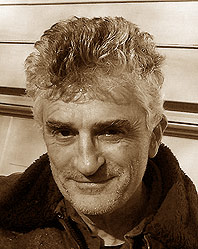Population and its Problems
But first, before concerning himself with economic affairs, the Regulator opted to address the most pressing of national issues, a population catastrophe in which the average American acre was expected to provide habitation for 29.32 citizens, as opposed to the 1.09 of more healthy times. The earth groaned under the weight. “Never,” said he, (said the Regulator) “has so much ignorance and so many vile appetites been compressed into such tight quarters, save only perhaps in Europe, Asia, and Latin America.” He went on: “Every man his hundred acres! And let no domiciles come within three hundred yards of each other, certainly not. Every man his library, incunabula mostly and all of them leather bound!” (Wild cheering.) “And how, Sir, may we bring the population down?” (This was actually asked by one of the bystanders.) “Why, by giving them six months to get out of town!” “’Them?’” “Bet your sweet ass ‘them!’” (Wild cheering.) “And then we cancel all constitutional rights for those as lag behind. Want to take their houses and rape their wives? Have at it!” “Actually it’s their daughters, Sir. Not their wives.” And so thus Lee, who gave the order that same day. Not content with that, he next wheedled some 17 million youths off to Key West with promises of beer, video games and sex. It needed just two score of patriotic Americans to sever the single highway to that island and push it out to sea. Amazing, how quickly the quality of life on the mainland began to return to the “gold standard” of 1940-58. Next, he fobbed off almost 72 million liberals to a certain well-known large city in the Northeast which the Executor (as he was sometimes called) immediately quarantined with a laser-defended wall varying from thirty to thirty-five feet in height. Had he died that moment, The Regulator would surely have gone down as perhaps the greatest benefactor in the whole history of the West. But still his work was not done, not even after he had purged the nation of those some seventeen million afflicted with the “cathode ray tube sickness,” a mortal condition characterized by atrophy of the brain. [Next week: Europe] Labels: population control
Bookmark Interview
My interview on Don Noble's Bookmark program will be rebroadcast on November 22 at 11am on Alabama Public Television. Labels: APTV, Bookmark, Don Noble
Inauguration of the Regulator
Blustery day, that when Lee “Leland” Pefley, age 77, composed and committed himself before a crowd of more than thirty souls to the “Great Oath,” properly so-called, that marked his assumption of total power in the political, economic, military, and cultural realms. His right hand on a copy of the first edition of the novel named after himself, he pledged all sorts of things. (Thirty souls! A select group, to be sure, chosen by lot from unpublished writers and long-term prisoners furloughed for the purpose.) “I do pledge,” it is said he said, “do pledge to do what is most aesthetically pleasing, and to hell with practical results. Anyway, I’m sick of results and people of that sort. What is the quality of American poetry, yes? And how many of us, really, can speak both Aeolic and Attic Greek? These are the questions my cabinet shall address next Monday at our annual fry. (Some of those prisoners are still at large, the neighbors claim.) “And what will be my policy you ask?” (He pointed to the one who had asked it, a roseate and gimlet-eyed rubicund man with a beetling brow handcuffed most cruelly in barbed wire.) “We don’t need no stinking policy! All we need is…” But here his voice was overwhelmed by the National Orchestra’s rendition of the second movement of Mahler’s eighth, a performance commanded by him at 3:15 that same afternoon upon awakening for the brand new day.
The Coming of the Regulator
How strange, that the young people of today have no apparent collective familiarity with the seminal events of 2017-22, that “social earthquake,” so-denominated, that established the foundations of our current happiness. Indeed, a recent poll carried out by the J. W. Booth Institute suggests that as much as 14% of the youthful population could not immediately identify the official oil painting of Regulator Leland (“Lee”) Pefley on display in our nation’s capitol in Richmond. It might seem therefore that the time has come to review the signal achievements of this epoch-making individual who, if it is not too much to claim, restored our republic to the condition that in the normal course of events it could (and should) have assumed some seventy or eighty years earlier. But first, recollect how this person ascended to the newly formed emergency position of Regulator, a last ditch measure to shore up our national boundaries and restore some, at least, of the features of the by-then forgotten American Constitution, (to employ the nomenclature of the nostalgists of that day). Prior to having dissolved itself in the autumn of 2015, you will remember how the Senate in its final action had set up this new position, granting wide executive powers agreed to endure for five years. Remember, too, that the quality of our higher officers had already begun to improve somewhat, owing to the new method of selection by lottery. Even so, (you must also recall) our society remained in the most parlous condition, the “War Without Pity” still raging in full flood between The Junta, The Bloods, and The Caucasoid Rump.
A Hole in the Hole
To elude the modern world, it’s not always enough to have a secret place, a “sanctuary,” so to speak, or even a deep round hole in the cold hard ground. Nor is it always enough to have access to an abandoned well or disused missile silo in order to ward away the sounds of rock and rap, of chainsaws and midday blonde newscasters. No, very often a person will want even greater secrecy, a “hole in the hole,” as we should call it, a carpeted area about eight feet square where a fellow can squirrel away a package of non-filtered cigarettes along with candles and a literary novel or two. Here, lost in ecstasy, that fellow might dredge up a few old ethnic jokes, indulge in negative thoughts, and allow his facial expression to do as it wants. (We mention this here as just one of the possible compensations of the examined life.)
A Hole in the Wall
But first, before taking up residence in the countryside, it is absolutely crucial to avoid those things that could abort, or even reverse, any effort to live a more essential and more spiritual life, namely the good likelihood that a person of our sort will end up offending one or more of our guardians and/or law officers. Crucial, too, to remember that it is impossible to go on breathing in times of late decadence without at the same time being in violation of at least two or three laws or fashion imperatives. Where really, can a person go if he wishes to have a cigarette? Or tell and ethnic joke? What if he finds himself having negative thoughts about some specific race or gender or handicapped person, some man/boy pederast or cocaine merchant? How if he prefers old movies to new, yea, and romantic ballads as well? How about it if he habitually averts his face when Madonna comes on stage? And how about that Brad person and his wives! You remember how during the religious troubles in Britain, certain unreformed Catholic aristocrats used to create secret cubicles in their homes where outlawed priests could hide from the authorities? Well there’s our answer I do believe – have a hidden place, about eight feet square, where one could smoke or speak out loud, consume high caloric foods and fail to exercise. There, in perfect darkness, a man might curse the modern age, the obsolescence of mules and the coming of baggy pants. An then, after an hour or so, fall into the best-quality sleep still available to those charged with supporting with blood and treasure the world’s last (as of today) superpower. Labels: Decadence
In times of decadence...
Moving right along, we need now to consider the ways in which a decent person might be able to weather the next few impending years. Already we’ve agreed that anyone living in a city needs immediately to abandon the place, taking as many of his or her private possessions as can be fitted into the trunk of an automobile. (We’ve not yet come to the point where racial profiling has made travel impossible for white people, nor have CCTV cameras as yet been programmed to narrow in on people understood to be historically guilty. Accordingly, a scrupulous driver ought to be able to put a fair number of jurisdictions between himself and the city he is fleeing before his local IRS agent and other creditors have been twittered as to the fact.) And this, that although city dwellers aren’t permitted to expose actual rifles in the rear window of their vehicles, yet decals are easily available, and cheap. Having (we assume) escaped the downtown city and (a much less difficult operation), having bribed the toll taker and gatekeepers, our delinquent instinctively points his and her nose to the South, last place on earth where a person can still be left alone. Here, settled amongst poor people who still understand how to grow food, our person can sleep till noon, tend hogs, listen to good music and read four or five books a week. (Our next installment will undertake to cite which books and hogs are most availing for an individual of our kind.) Labels: Decadence, rural life, urban life
|








